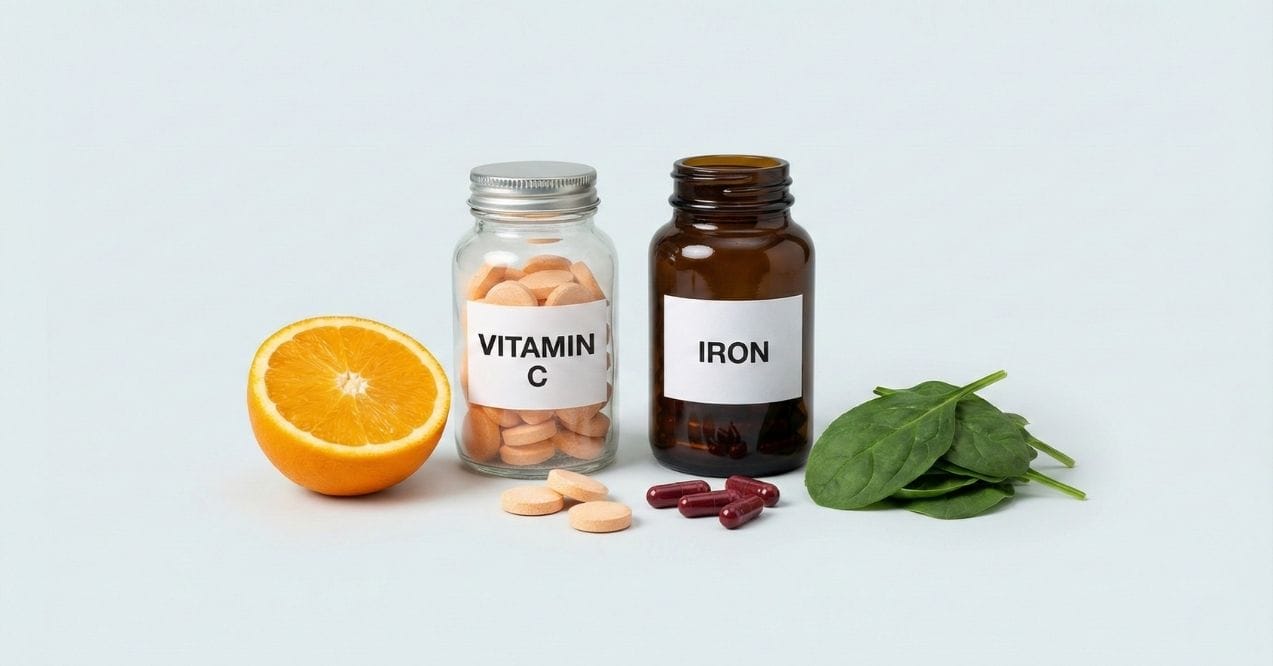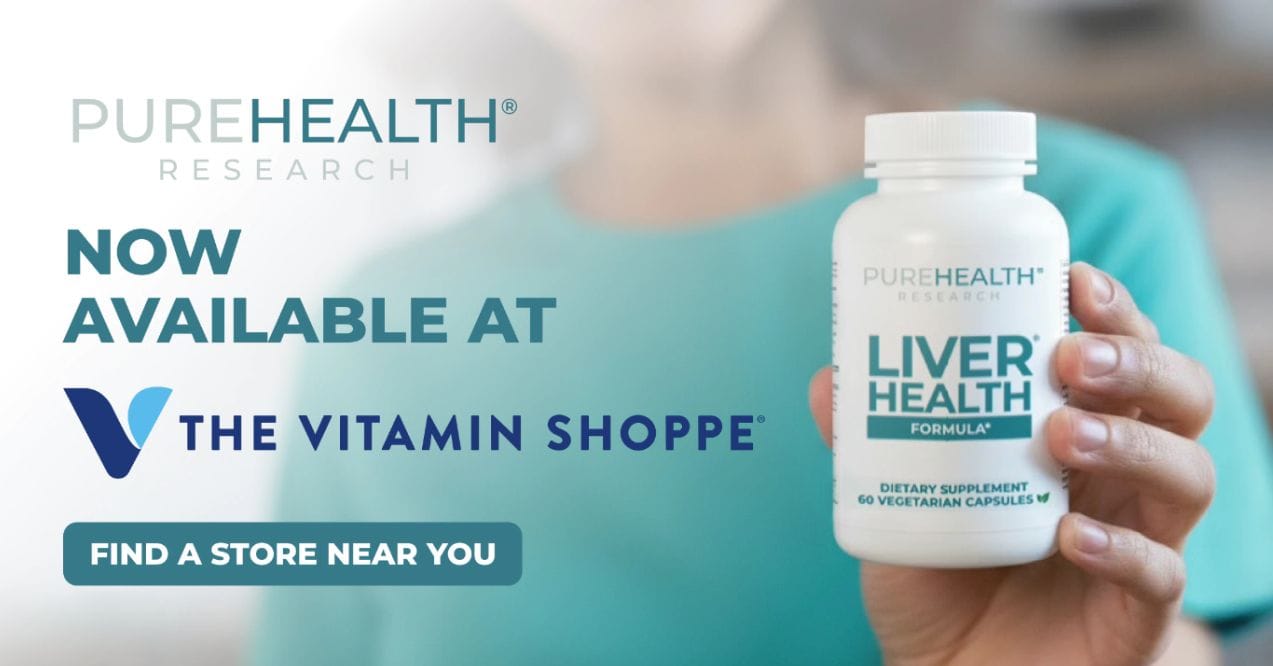What Are The Best Vitamins to Take Daily?
Discover the best vitamins to take daily, their benefits, sources, and safe supplementation tips for a balanced lifestyle!


In our quest for optimal health and vitality, understanding the best vitamins to take daily becomes increasingly important. Vitamins are essential nutrients that play a crucial role in maintaining health and well-being. As we age, our bodies’ nutritional needs evolve, making it vital to know what vitamins should be part of our daily regimen. This is especially true considering the myriad dietary supplements available in the market today.
The human body requires a range of vitamins to function correctly, each contributing uniquely to our overall health. For instance, Vitamin D3 and K2 is essential for bone health, Vitamin C is a potent antioxidant, and B vitamins are pivotal for energy metabolism. As we delve into what are the 3 most important vitamins, it’s worth noting that the answer can vary based on individual health needs and life stages.
For men in their 30s, the focus often shifts to maintaining energy levels, supporting muscle health, and laying the groundwork for long-term well-being. In this context, understanding what vitamins should a 30 year old man take becomes relevant. Typically, this includes vitamins like Vitamin D for bone health, Vitamin B12 for energy, and antioxidants like Vitamin E.
However, with the plethora of options and individual health variations, how to know what vitamins to take can be challenging. It involves understanding your unique health needs, lifestyle factors, and sometimes even genetic predispositions.
If you are asking what vitamins should i take everyday? Our comprehensive guide aims to simplify this complex topic, providing clear, evidence-based insights on daily vitamin intake for various life stages and needs.
The Basics of Vitamins and Minerals
Vitamins and minerals are crucial for maintaining the various functions within our body, acting as essential catalysts and supporters in numerous biological processes. To understand what are the best vitamins and supplements for energy involves recognizing how these nutrients contribute to our overall health and vitality:
- Vitamins, which are organic compounds, play diverse roles in the body. For instance, B vitamins are vital for energy metabolism, aiding in converting our food into usable energy. This is similar to how yeast helps bread rise by transforming ingredients into a new form. Vitamin C, known for its immune-boosting properties, acts like a guard, protecting the body against infections and aiding in healing.
- Minerals, on the other hand, are inorganic elements crucial for structural and regulatory functions. Calcium is essential for bone and teeth health, much like how bricks are necessary for building a strong foundation in a house. Iron is critical for transporting oxygen in the blood, akin to how a delivery truck distributes goods to various parts of a city.
Identifying Signs of Vitamin Deficiency
Wondering, “Why does my body feel heavy“? Or “Why does my hair fall out”? Well, vitamin deficiencies can manifest in various subtle, yet significant ways in our daily lives. Recognizing these signs is key to maintaining optimal health and addressing any nutritional gaps in our diet. Here are some common symptoms that may indicate a deficiency in specific vitamins, along with guidelines on when to seek medical advice:
- Fatigue – Often linked to deficiencies in Vitamin B12 or Iron. Persistent tiredness despite adequate sleep may indicate a need for these nutrients.
- Bone Pain and Muscle Weakness – Could signify a Vitamin D deficiency, crucial for bone health and muscle function.
- Poor Night Vision and White Spots on Nails – These symptoms are commonly associated with a Vitamin A deficiency, important for eye health.
- Bleeding Gums and Easy Bruising – Often a sign of Vitamin C deficiency, which is essential for wound healing and collagen production.
- Hair Loss and Dermatitis – These can be linked to a Biotin (Vitamin B7) deficiency, vital for hair and skin health.
- Numbness or Tingling in Hands and Feet – A possible indication of Vitamin B9 (folate) or Vitamin B12 deficiency, important for nerve function.
Navigating the world of vitamins can be overwhelming, but understanding the essential vitamins is crucial for maintaining optimal health. Here is a list of the best vitamins to take daily that are vital for various bodily functions, tailored to help you make informed choices for a healthier lifestyle:
Vitamin A

Vitamin A, a fat-soluble vitamin, is crucial for various bodily functions, particularly for maintaining healthy vision, immune system function. Additionally, vitamin A can be a good solution for those who wonder, “What vitamin helps with crepey skin?” Here’s a concise overview of vitamin A:
Benefits
- Essential for eye health, particularly for night vision and color perception.
- Supports a healthy immune system.
- Important for skin health and cell growth.
Recommended Intake
- Children (1-3 years); 300 mcg/day
- Children (4-8 years): 400 mcg/day
- Children (9-13 years): 600 mcg/day
- Teens (14-18 years): 900 mcg/day for males, 700 mcg/day for females
- Adults: 900 mcg/day for males, 700 mcg/day for females
- Pregnant women: 770 mcg/day
- Breastfeeding women: 1,300 mcg/day
Food Sources:
- Animal-based: Liver, fish oils, and dairy products.
- Plant-based (as beta-carotene): Sweet potatoes, carrots, spinach, and kale.
Vitamin B Complex

Vitamin B6
Vitamin B6, also known as pyridoxine, plays a pivotal role in brain development and function and is integral to the metabolism of proteins, fats, and carbohydrates. Here’s a closer look at its benefits, recommended intake, and food sources:
Benefits
- Crucial for brain development and health, especially in children and during pregnancy.
- Aids in the production of neurotransmitters such as serotonin and dopamine.
- Supports the metabolism of amino acids and the creation of red blood cells.
Recommended Intake
- Infants (0-6 months): 0.1 mg/day
- Infants (7-12 months): 0.3 mg/day
- Children (1-3 years): 0.5 mg/day
- Children (4-8 years): 0.6 mg/day
- Children (9-13 years): 1.0 mg/day
- Teens (14-18 years): 1.3 mg/day for males, 1.2 mg/day for females
- Adults: 1.3 mg/day for males, 1.5 mg/day for females
- Pregnant women: 1.9 mg/day
- Breastfeeding women: 2.0 mg/day
Food Sources
- Poultry like chicken and turkey, especially the white meat.
- Fish such as salmon and tuna.
- Whole grains and cereals, fortified with B6.
- Some fruits and vegetables, notably bananas and avocados.
Vitamin B9 (Folate)
Vitamin B9, commonly known as Folate or Folic Acid when included in supplements, is an essential vitamin that plays a critical role in DNA synthesis. Here’s an overview of its benefits, recommended intake, and food sources:
Benefits
- Crucial for fetal development, significantly reducing the risk of neural tube defects.
- Supports the formation of red blood cells, preventing anemia.
- Aids in DNA synthesis and repair, promoting overall cell health.
Recommended Intake
- Infants (0-6 months): 65 mcg/day
- Infants (7-12 months): 80 mcg/day
- Children (1-3 years): 150 mcg/day
- Children (4-8 years): 200 mcg/day
- Children (9-13 years): 300 mcg/day
- Teens (14-18 years): 400 mcg/day
- Adults: 400 mcg/day
- Pregnant women: 600 mcg/day
- Breastfeeding women: 500 mcg/day
Food Sources
- Leafy green vegetables like spinach, kale, and Brussels sprouts.
- Fruits such as citrus fruits and bananas.
- Beans, peas, and lentils.
- Fortified grains and cereals.
Vitamin B12
One of the best vitamins to take daily is Vitamin B12, a crucial water-soluble vitamin, is known for its significant role in nerve function. Unlike other B vitamins, B12 is stored in significant amounts in the liver, but a regular intake is still important as the body can’t produce it. This vitamin is particularly noteworthy for those following a vegetarian or vegan diet, as it’s primarily found in animal products.
Benefits
- Essential for neurological function and mental health.
- Aids in the production of red blood cells, preventing anemia.
- Crucial for DNA synthesis and repair.
Recommended Intake
- Infants (0-6 months): 0.4 mcg/day
- Infants (7-12 months): 0.5 mcg/day
- Children (1-3 years): 0.9 mcg/day
- Children (4-8 years): 1.2 mcg/day
- Children (9-13 years): 1.8 mcg/day
- Teens (14-18 years): 2.4 mcg/day
- Adults: 2.4 mcg/day
- Pregnant women: 2.6 mcg/day
- Breastfeeding women: 2.8 mcg/day
Food Sources
- Animal-based: Beef, liver, chicken, fish, and dairy products.
- Fortified foods: Plant-based milks and fortified cereals (important for vegetarians and vegans).
- Supplements: Another alternative for those on a plant-based diet or with absorption issues.
Vitamin C

Vitamin C, also known as ascorbic acid, is a potent antioxidant that is essential for the maintenance of overall health. It’s a water-soluble vitamin, meaning it’s not stored in the body and needs to be replenished regularly through diet or supplements. Here’s more on its benefits, recommended intake, and food sources:
Benefits
- Boosts immune system function.
- Vital for collagen synthesis, supporting skin, teeth, and bone health.
- Enhances iron absorption and contributes to wound healing.
Recommended Intake
- Infants (0-6 months): 40 mg/day
- Infants (7-12 months): 50 mg/day
- Children (1-3 years): 15 mg/day
- Children (4-8 years): 25 mg/day
- Children (9-13 years): 45 mg/day
- Teens (14-18 years): 75 mg/day for males, 65 mg/day for females
- Adults: 90 mg/day for males, 75 mg/day for females
- Pregnant women: 85 mg/day
- Breastfeeding women: 120 mg/day
Food Sources
- Citrus fruits like oranges, lemons, and grapefruits.
- Berries, including strawberries and blueberries.
- Vegetables such as bell peppers, broccoli, and Brussels sprouts.
- Kiwifruit and papayas are also excellent sources.
Vitamin D

Vitamin D, often dubbed the sunshine vitamin, is unique among vitamins as it can be synthesized by the body when exposed to sunlight. This fat-soluble vitamin plays a pivotal role in the absorption of calcium and phosphorus, making it essential for maintaining bone and teeth health. Here’s a closer look at the benefits, recommended intake, and food sources of Vitamin D:
Benefits
- Crucial for the absorption and regulation of calcium and phosphorus, supporting bone and dental health.
- Plays a role in immune system function.
- May influence mood regulation and help in preventing mood disorders.
Recommended Intake
- Infants (0-12 months): 10 mcg (400 IU)/day
- Children and Teens (1-18 years): 15 mcg (600 IU)/day
- Adults up to age 70: 15 mcg (600 IU)/day
- Adults over 70: 20 mcg (800 IU)/day
- Pregnant and breastfeeding women: 15 mcg (600 IU)/day
Food Sources
- Fatty fish like salmon, mackerel, and tuna.
- Fish liver oils.
- Fortified foods such as milk, orange juice, and cereals.
- Egg yolks and cheese in smaller amounts.
In winter, it’s crucial to focus on supplementing due to the decreased sunlight exposure, which affects health significantly. One key consideration is how to get vitamin D naturally, which can be challenging during the colder months. Increasing Vitamin D intake is essential to compensate for the lack of natural synthesis from sunlight. Enhancing immune support is also important, utilizing vitamins such as Vitamin C and Zinc. Additionally, addressing mood and energy levels is vital, with a focus on B vitamins, especially B12. This comprehensive approach ensures that the body remains resilient and healthy despite the seasonal challenges
Vitamin E

Vitamin E, a group of eight fat-soluble compounds, is known for its antioxidant properties. Unlike water-soluble vitamins, Vitamin E is stored in the body’s fatty tissues and liver, making regular, but not excessive, intake important.
Benefits
- Acts as a powerful antioxidant, protecting cells from damage caused by free radicals.
- Supports immune function.
- Aids in the health of skin and eyes.
Recommended Intake
- Infants (0-6 months): 4 mg/day
- Infants (7-12 months): 5 mg/day
- Children (1-3 years): 6 mg/day
- Children (4-8 years): 7 mg/day
- Children (9-13 years): 11 mg/day
- Teens and Adults (14 years and older): 15 mg/day
- Pregnant women: 15 mg/day
- Breastfeeding women: 19 mg/day
Food Sources
- Plant oils such as wheat germ, sunflower, and safflower oil.
- Nuts and seeds, including almonds, hazelnuts, and sunflower seeds.
- Green leafy vegetables like spinach and broccoli.
- Fortified cereals and fruit juices.
Vitamin K

Vitamin K, encompassing a group of compounds primarily involved in blood clotting and bone metabolism, is an essential fat-soluble vitamin. It exists in two main forms: K1 (phylloquinone), found in plant foods, and K2 (menaquinone), found in animal-based and fermented foods. Is vitamin K potassium? The answer is no. Vitamin K and potassium are distinct nutrients, each essential for different bodily functions. Moreover, it is important to note that body stores Vitamin K in the liver and fatty tissues, ensuring a consistent supply for its critical functions.
Benefits
- Essential for blood clotting, helping prevent excessive bleeding.
- Plays a key role in bone health, aiding in bone formation and repair.
- May contribute to cardiovascular health.
Recommended Intake
- Infants (0-6 months): 2.0 mcg/day
- Infants (7-12 months): 2.5 mcg/day
- Children (1-3 years): 30 mcg/day
- Children (4-8 years): 55 mcg/day
- Children (9-13 years): 60 mcg/day
- Teens (14-18 years): 75 mcg/day
- Adult women: 90 mcg/day
- Adult men: 120 mcg/day
- Pregnant or breastfeeding women should consult with a healthcare provider for appropriate dosages.
Food Sources
- Leafy green vegetables such as kale, spinach, and broccoli.
- Vegetable oils like soybean and canola oil.
- Certain fruits, like blueberries and figs.
- Meats, dairy products, and fermented foods (for K2).
Essential Minerals

Apart from the best vitamins to take daily, essential minerals are vital components of our diet, playing a key role in maintaining various bodily functions and overall health. These minerals, required in varying amounts, contribute to bone health, regulate fluid balance, support nerve function, and are involved in numerous metabolic processes. Understanding and incorporating these critical nutrients into our daily diet is fundamental for a balanced and healthy lifestyle.
Magnesium
Magnesium plays a vital role in maintaining muscle and nerve function, and its deficiency can lead to several health issues. Here’s a breakdown of its role, dietary sources, and signs of deficiency:
Role in Muscle and Nerve Function
- Helps muscles relax after contraction, preventing cramps and spasms.
- Regulates neurotransmitters for proper nerve function.
Presence in Various Foods
- Leafy green vegetables (e.g., spinach).
- Nuts and seeds.
- Whole grains and legumes.
- Fish, bananas, dark chocolate, and avocados.
Signs of Deficiency
- Early symptoms – Muscle twitching, cramps, stiffness.
- Advanced symptoms – Constant fatigue, irregular heart rhythms, numbness, or tingling.
Ensuring adequate magnesium intake through diet or supplements, if necessary, is important for overall health, particularly for muscle and nerve function. Additionally, magnesium is also one of the best vitamins for muscle fatigue. If symptoms of deficiency are present, consulting a healthcare professional is recommended.
Finally, when considering magnesium supplements, it is important to choose a form that is best absorbed and tolerated by the body. Two common forms are magnesium citrate and magnesium glycinate. Comparing magnesium citrate vs glycinate, magnesium citrate is known for its effectiveness in improving digestion and preventing constipation, making it a good choice for those with digestive issues. On the other hand, magnesium glycinate is often recommended for those who require magnesium supplementation without the laxative effect, as it is gentler on the stomach and better absorbed, making it ideal for long-term use. Therefore, the choice between magnesium citrate vs glycinate should be based on individual health needs and digestive sensitivity.
Iron
Iron is a crucial mineral, especially in the prevention of anemia, a condition marked by a lack of healthy red blood cells to carry adequate oxygen to the body’s tissues. Women, particularly those of childbearing age, are at a higher risk of iron-deficiency anemia due to blood loss during menstruation and increased iron needs during pregnancy. Here’s an overview of iron’s importance, dietary sources, and supplementation advice:
Importance in Preventing Anemia
- Essential for the production of hemoglobin, a component of red blood cells that carries oxygen.
- Helps in reducing fatigue and improving concentration, which are often impaired in anemia.
Dietary Sources
- Heme iron (more easily absorbed) – Red meat, poultry, and fish.
- Non-heme iron – Lentils, beans, spinach, fortified cereals, and whole grains.
Supplementation Advice
- Iron supplements may be necessary for those with diagnosed deficiency or for women with heavy menstrual periods.
- Vitamin C enhances iron absorption, so pairing iron-rich foods with vitamin C-rich foods (like citrus fruits) is beneficial.
- Excessive iron intake can be harmful, so it’s important to consult a healthcare provider before starting supplements.
Additionally, recognizing the 15 signs you are iron deficient is vital for identifying and addressing this deficiency early. These signs include persistent fatigue, pale skin, shortness of breath, and frequent infections, which can significantly impact overall health and well-being. Understanding these signs can help in taking timely action, such as adjusting dietary intake or beginning supplementation, to restore iron levels and improve health.
Calcium
Calcium plays a pivotal role in maintaining bone health, an aspect that becomes increasingly important for postmenopausal women. After menopause, the decline in estrogen levels leads to a decrease in bone density, making adequate calcium intake crucial to prevent osteoporosis. Here’s a focused look at calcium’s role, recommended intake, and dietary sources:
Role in Bone Health
- Critical for building and maintaining strong bones and teeth.
- Helps in the prevention of osteoporosis, especially in postmenopausal women.
Recommended Intake
- Adult women (19-50 years): 1,000 mg/day.
- Women over 50: 1,200 mg/day.
Dietary Sources
- Milk, cheese, and yogurt.
- Fortified plant milks (almond, soy), leafy green vegetables (kale, broccoli), and tofu.
- Fish with edible bones, like sardines and salmon.
For postmenopausal women, ensuring an adequate intake of calcium is essential. Along with a balanced diet, lifestyle factors like regular exercise and avoiding smoking and excessive alcohol can also support bone health. If dietary sources are insufficient, calcium supplements can be considered, but it’s important to consult with a healthcare provider to determine the appropriate dosage and to discuss the risk of excessive calcium intake. Additionally, if you are wondering, “Is collagen or calcium better for bones?” it is important to understand that collagen and calcium play different but interconnected roles in maintaining bone strength and integrity.
Zinc
Zinc is an essential trace mineral known for its significant role in supporting the immune system. It’s crucial for the development and function of immune cells, and plays a role in inflammatory response and antioxidant protection. Here’s an overview of zinc’s immune-supporting functions, recommended intake, and food sources:
Immune-Supporting Functions
- Essential for immune cell development and communication.
- Helps in wound healing and tissue repair.
- Acts as an antioxidant, fighting against oxidative stress.
Recommended Intake
- Adult men: 11 mg/day.
- Adult women: 8 mg/day.
- Pregnant women: 11 mg/day.
- Breastfeeding women: 12 mg/day.
Food Sources
- Red meat, poultry, and seafood (especially oysters).
- Nuts, whole grains, legumes, and seeds.
- Dairy products.
Adequate zinc intake is essential for maintaining a strong immune system. It’s usually attainable through a balanced diet, but in cases where dietary intake might not be sufficient, supplements can be an option. However, it’s important to avoid excessive zinc intake, as it can interfere with the absorption of other essential minerals, like copper.
Special Cases – Folate vs. Folic Acid

Folate and folic acid are forms of Vitamin B9, crucial for cell growth and metabolism, but they differ in several ways, including their sources and how the body processes them. Understanding their roles, especially in preventing birth defects, and their importance in the diet is essential.
Differences between Folate and Folic Acid
- Folate – This is the naturally occurring form of Vitamin B9, found in food. It’s metabolized in the small intestine.
- Folic Acid – This is the synthetic form, added to fortified foods and used in supplements. It’s metabolized in the liver and is more stable and bioavailable than folate.
Roles in Preventing Birth Defects
- Both folate and folic acid are vital in preventing neural tube defects (NTDs) in babies, such as spina bifida and anencephaly. They play a critical role in DNA synthesis and repair, which is crucial during the early stages of fetal development.
- Women of childbearing age and pregnant women are often advised to ensure adequate intake of folic acid for this reason.
Importance in the Diet
- Folate Sources – Leafy green vegetables, legumes, seeds, and liver.
- Folic Acid Sources – Fortified cereals, breads, pastas, and other grain products.
A balanced diet including both folate-rich foods and folic acid-fortified foods is recommended for optimal health.
While folate and folic acid both contribute to health and the prevention of birth defects, understanding their differences aids in making informed dietary choices and supplement use, especially for women in their reproductive years.
Need for Supplements Based on Diet and Lifestyle
How to know what vitamins to take? When assessing dietary intake of vitamins and considering supplementation, it’s important to account for individual lifestyle factors, including physical activity and age. Athletes or those regularly engaging in sports typically have higher nutritional needs to support energy production, recovery, and muscle health. This may necessitate specific supplements or an increased intake of certain vitamins and minerals.
Additionally, dietary needs vary with age. For instance, the best supplements for men over 40 are Vitamin D, Omega-3 fatty acids, and B vitamins, to support bone health, heart health, and energy metabolism. Similarly, nutrient needs for children, teenagers, and the elderly differ due to their unique physiological stages and health challenges.
Click here to explore a range of supplements tailored to meet your individual health and nutritional needs.
How to Choose the Right Vitamins?
When selecting vitamin supplements, consider these three crucial points:
- Assess Personal Health Needs – Evaluate your diet, lifestyle, and any health concerns to identify which vitamins you may need. This varies with age, dietary habits, and physical activity level.
- Careful Label Examination – Pay close attention to the labels for information on ingredients, dosages, and any added substances. Choose a dosage that complements your diet and meets standard health guidelines.
- Professional Consultation – It’s essential to consult with a healthcare provider or a nutritionist to get personalized advice, ensuring that your choice of supplements safely aligns with your specific health needs and goals.
When to Consult a Doctor?
If you experience symptoms that may indicate a deficiency, such as chronic fatigue or unexplained aches, it’s important to seek professional advice. This is also essential before starting any new supplement regimen, particularly if you have pre-existing medical conditions or are taking other medications, to avoid potential adverse interactions.
Individuals with chronic health issues, pregnant or breastfeeding women, and those who do not notice improvement or experience worsening symptoms despite supplement use, should also consult with their healthcare provider. This ensures that any supplementation is safe, effective, and tailored to individual health needs and goals.
Brief Overview
- Balanced Diet is Key – The primary source of essential vitamins and minerals is a varied, healthy diet rich in fruits, vegetables, whole grains, and proteins.
- Supplements Fill Gaps – They are beneficial for filling dietary deficiencies, particularly for specific groups like men over 40, pregnant women, or those with dietary restrictions.
- Personalized Needs – Vitamin and mineral needs vary with age, health conditions, and lifestyle; supplements should be tailored accordingly.
- Professional Advice – Consult healthcare providers for guidance on supplement use, especially when symptoms of deficiencies appear or for chronic health conditions.
- Mindful Supplementation – Read labels for correct dosage, and reassess supplement choices regularly to align with changing health needs.
The three most important vitamins are Vitamin D, essential for bone health and immunity; Vitamin C, vital for immune support and collagen production; and Vitamin B complex, crucial for energy metabolism, brain function, and overall well-being. Each plays a unique role in maintaining good health.
A 30-year-old man should consider vitamins that support his overall health. If you are wondering what vitamins should men take you may consider including Vitamin D for bone health, B vitamins for energy metabolism, Vitamin C for immune support, and Omega-3 fatty acids for heart and brain health. However, individual needs vary, so consulting a healthcare professional is advisable.
People need Vitamin D for various essential functions. It helps the body absorb calcium, promoting strong bones and teeth. Additionally, it plays a crucial role in immune system support, mood regulation, and overall well-being. Sun exposure, dietary sources, and supplements are ways to maintain adequate Vitamin D levels.
Sign up for our Healthy Living newsletter!
Advertisement. This site offers health, wellness, fitness and nutritional information and is designed for educational purposes only. You should not rely on this information as a substitute for, nor does it replace, professional medical advice, diagnosis, or treatment. If you have any concerns or questions about your health, you should always consult with a physician or other health-care professional. Do not disregard, avoid or delay obtaining medical or health related advice from your health-care professional because of something you may have read on this site. The use of any information provided on this site is solely at your own risk.










